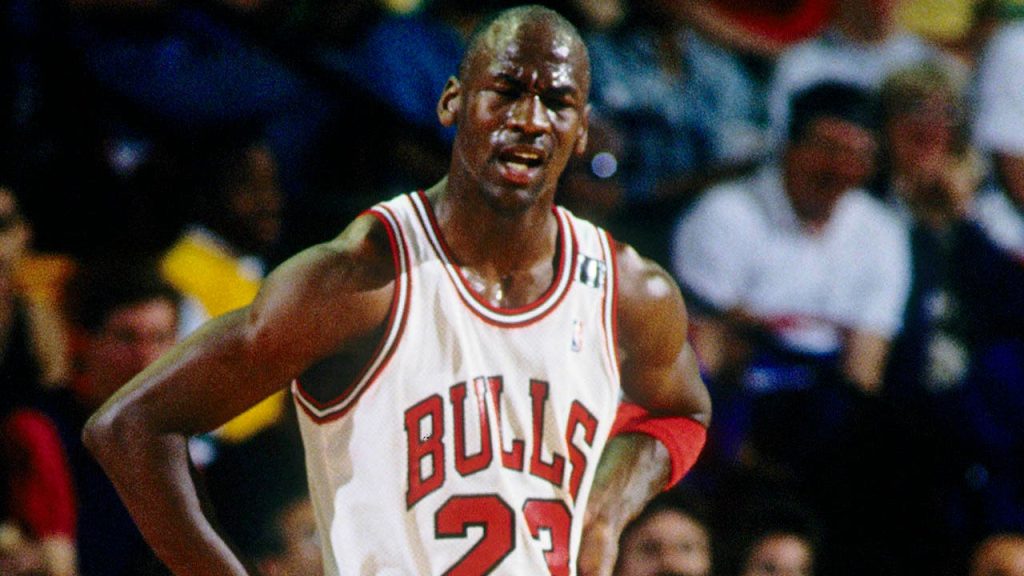Michael Jordan’s Perspective on Load Management in the NBA
In a candid conversation with NBC’s Mike Tirico during the “MJ: Insights to Excellence” series, basketball icon Michael Jordan shared his thoughts on the modern NBA practice of load management. The six-time NBA champion emphasized a fundamental belief that guided his 15-year career: showing up for fans who invested their hard-earned money to see him play. “It shouldn’t be needed first and foremost,” Jordan stated firmly about load management. “I never wanted to miss a game because it was an opportunity to prove.” He explained that he felt a personal responsibility to perform for every ticket holder, particularly those who had “worked his ass off to get a ticket or get money to buy the ticket.” This sense of duty wasn’t just abstract—it was personal for Jordan, who admitted he especially wanted to impress and “shut up” the vocal fans in the nosebleed sections who might be heckling him.
Jordan’s commitment to playing through adversity was shaped early in his career when he refused to sit after twisting an ankle. This mentality culminated in one of basketball’s most iconic performances: Game 5 of the 1997 NBA Finals against the Utah Jazz, famously known as the “Flu Game.” Despite being severely ill, Jordan explained his thought process: “I was going to find a way to get out there – even if I was a decoy.” What began as simply showing up transformed into an extraordinary performance fueled by “emotions, the situation, the need of the team.” For Jordan, this exemplified how pushing through physical limitations could lead to unexpected greatness, something that calculated rest schedules might prevent.
The basketball legend framed his perspective on load management in simple mathematical terms that reflected his legendary work ethic. “I play basketball 2.5 hours a day, 3 hours a day, that’s your job. That’s what you get paid to do,” he said directly to today’s players. The critical question he posed was pointed: “What are you doing the other 21 hours?” In Jordan’s view, those remaining hours should be dedicated to preparation and recovery, making formal load management unnecessary. This philosophy reflects Jordan’s renowned competitive drive that propelled him to six championships and cemented his status as arguably the greatest basketball player of all time. For Jordan, being available wasn’t just about showing up—it was about maintaining the razor-sharp edge that defined his career.
Beyond individual performance, Jordan highlighted how load management affects team dynamics. “I want our rhythm as a team to always be there. It can disrupt that synergy,” he explained. Throughout his career with the Chicago Bulls, Jordan valued consistency in team lineups and rotations, believing that regular play together built the chemistry necessary for championship success. This perspective reflects Jordan’s understanding of basketball as both an individual and collective endeavor, where personal choices about rest and recovery have broader implications for team performance. Jordan’s Bulls teams were known for their cohesion and ability to perform under pressure—qualities he believes came from consistent playing time together rather than calculated rest schedules.
The NBA has recognized some of the concerns Jordan raises, particularly regarding fan experience and league-wide competitiveness. Recent rule changes now require players to appear in at least 65 games to be eligible for major awards like MVP and All-NBA selections. These adjustments attempt to balance the modern understanding of sports medicine with the entertainment value that drives the league’s success. Jordan’s comments come at a time when the league continues to navigate this balance, with some teams and players still strategically resting players despite the new regulations. The debate over load management represents a broader conversation about how the sport has evolved since Jordan’s era, with advanced analytics and medical science playing increasingly significant roles in basketball operations.
Jordan’s perspective on load management ultimately reveals the mindset that separated him from his peers and continues to distinguish him from many of today’s stars. His approach was grounded in an unwavering commitment to excellence and a respect for the game’s relationship with its fans. “You have a duty,” Jordan stated simply. “If they’re wanting to see you, and as an entertainer, I want to show.” This sense of obligation to perform—regardless of circumstances—defined Jordan’s career and contributed to his legendary status. While modern sports science offers compelling evidence for strategic rest, Jordan’s comments remind the basketball world of the intangible benefits that come from pushing through challenges and honoring commitments to fans. His perspective offers today’s players a glimpse into the mentality that created not just a basketball superstar, but a cultural icon whose influence transcends the sport itself.


